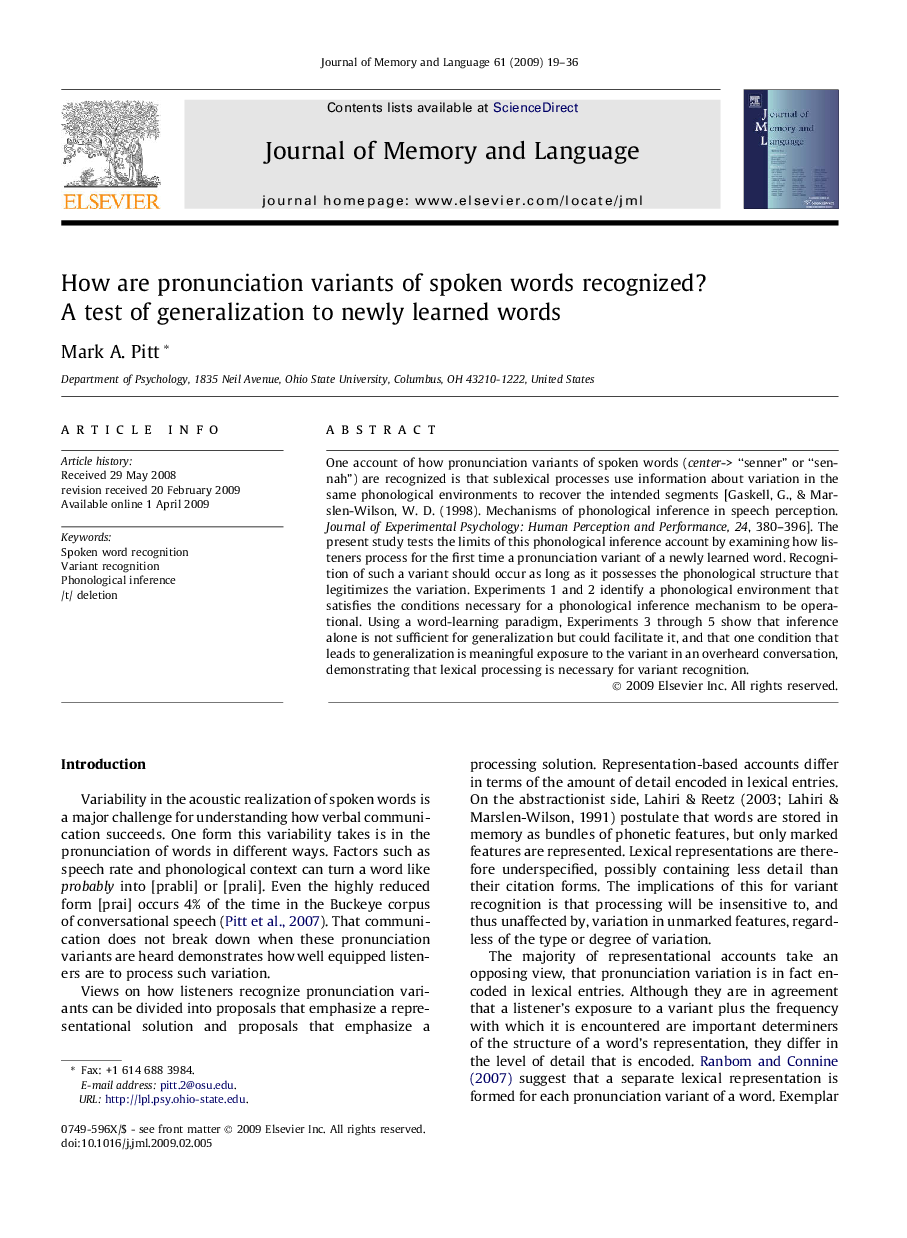| Article ID | Journal | Published Year | Pages | File Type |
|---|---|---|---|---|
| 932230 | Journal of Memory and Language | 2009 | 18 Pages |
One account of how pronunciation variants of spoken words (center-> “senner” or “sennah”) are recognized is that sublexical processes use information about variation in the same phonological environments to recover the intended segments [Gaskell, G., & Marslen-Wilson, W. D. (1998). Mechanisms of phonological inference in speech perception. Journal of Experimental Psychology: Human Perception and Performance, 24, 380–396]. The present study tests the limits of this phonological inference account by examining how listeners process for the first time a pronunciation variant of a newly learned word. Recognition of such a variant should occur as long as it possesses the phonological structure that legitimizes the variation. Experiments 1 and 2 identify a phonological environment that satisfies the conditions necessary for a phonological inference mechanism to be operational. Using a word-learning paradigm, Experiments 3 through 5 show that inference alone is not sufficient for generalization but could facilitate it, and that one condition that leads to generalization is meaningful exposure to the variant in an overheard conversation, demonstrating that lexical processing is necessary for variant recognition.
